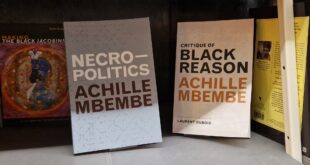There is a “critical period” for learning a second language, with people remaining adept learners until the age of 17 or 18, when their ability drops, according to a new study.
Conducted by the Massachusetts Institute of Technology, the study suggests that the “critical period” for learning a new language is much longer than scientists had previously thought.
“It was surprising to us,” co-author Joshua Hartshorne said of the finding that children remain “very skilled” at learning the grammar of a new language until around 17 or 18.
“The debate had been over whether [the ability] declines from birth, starts declining at 5 years old, or starts declining starting at puberty.”
However, the study also found that it is nearly impossible for people to achieve native-like proficiency unless they start learning by the age of 10.
“We don’t see very much difference between people who start at birth and people who start at 10, but we start seeing a decline after that,” explained Hartshorne.
The findings were based on an online grammar quiz designed by the scientists and posted to Facebook, which was taken by nearly 670,000 people of different ages and nationalities.
The test, called “Which English?”, tested participants’ ability at determining grammatical errors, and asked their age, how long they had been learning English and in what setting.
The study found that adults are still good at learning foreign languages but are not able to reach the level of a native speaker if they begin learning as a teenager or adult.
Researchers were unable to establish what causes the critical period to end at around the age of 18, but suggested that it could be a result of biological changes or cultural factors.
“There’s roughly a period of being a minor that goes up to about age 17 or 18 in many societies. After that, you leave your home, maybe you work full time, or you become a specialised university student. All of those might impact your learning rate for any language,” co-author Josh Tenenbaum said.
© Euronews
 THE AFRICAN COURIER. Reporting Africa and its Diaspora! The African Courier is an international magazine published in Germany to report on Africa and the Diaspora African experience. The first issue of the bimonthly magazine appeared on the newsstands on 15 February 1998. The African Courier is a communication forum for European-African political, economic and cultural exchanges, and a voice for Africa in Europe.
THE AFRICAN COURIER. Reporting Africa and its Diaspora! The African Courier is an international magazine published in Germany to report on Africa and the Diaspora African experience. The first issue of the bimonthly magazine appeared on the newsstands on 15 February 1998. The African Courier is a communication forum for European-African political, economic and cultural exchanges, and a voice for Africa in Europe.





















